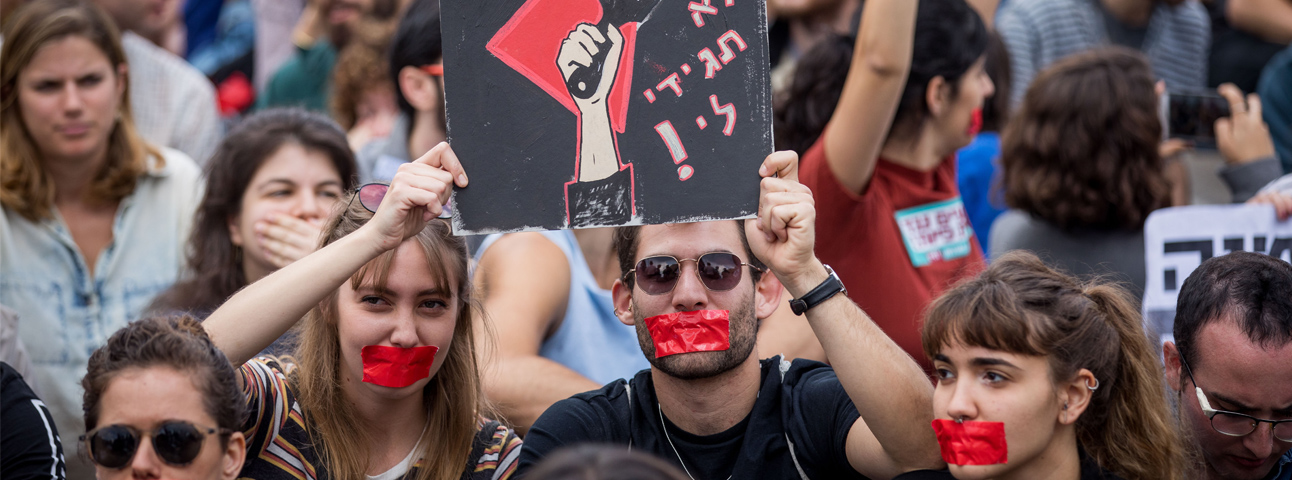"A Society without Culture is a Needy Society"
At a session of a conference on "Policy or Culture?” held by IDI and the Sapir Academic College, Minister Chili Tropper spoke of the need for culture to fortify society and not fall victim to divisive discourse.

Flash 90
The two-day online conference "Policy or Culture?" focused on Israel’s cultural policy. The conference is the product of collaboration between the Israel Democracy Institute and the Sapir Academic College, Department of Cultural Studies.
As part of the opening session – 'Cultural Policy – What For?' – MK Chili Trooper, Minister of Culture and Sports, commented that "the issue of statism is of course very broad and is always relevant. It seems to me that it is super- relevant these days, in light of the recent disagreements as to what the term implies. Additionally – culture is not an island. It takes place within a specific society and atmosphere, and if there are cracks in statism and in decision-making based on considerations of the greater good, these also penetrate and influence the culture.
"In such an atmosphere, things tend to move over to an aggressive political field. It's so hard to eradicate an epidemicת and so hard to maintain solidarity. I think one of the tasks—which is also an opportunity-- of the cultural world is to be a harbinger of unity and not of divisiveness. Culture—an arena which has the potential to fortify solidarity—is unfortunately the victim of a divisive discourse.
"Culture in Israel has been hit hard by corona, but I think part of our struggle has actually borne fruit – both in the practical sense of permission to hold cultural activities when possible, and in the allocation of unprecedented financial assistance, but also on a higher, value-rooted level: A society without culture is a needy society. Society cannot afford to ban culture for a year – it must deal with the effects of the virus such as loneliness and social distancing – and for these, there is no better cure than the world of culture."
The conference was held to mark the publication of a new policy study by Adv. Edna Harel-Fischer, a research fellow at the Israel Democracy Institute – "Statism in Cultural Policy". The study lays the groundwork for a discourse on cultural policy in Israel and provides policy recommendations, against the backdrop of recent public debate on this issue, the question of funding for cultural activities, and the state's commitment to the cultural arena.
Harel-Fischer noted, "In these days of deep crisis, when cultural institutions are paralyzed and the world of culture finds itself in dire straits, we need a new contract between the public, the field of culture and creativity, and the State; a contract that will be based on policy on culture. This is what lies at the core of my research. This 3-way relationship has undergone a very difficult upheaval in recent years, and it must be improved to enable us to cope more effectively even with severe crises, as in examples from other countries. My research calls for thoughtful and ongoing public engagement in cultural policy. A cultural policy discourse based on a deep understanding of the significance of culture for individuals and for society, and the importance of cultural expression, a multicultural approach and cultural literacy, will enable us to emerge stronger from this challenging crisis—also affecting the cultural arena-- and base the 3-way relationship on a statism approach
The conference was also held on the occasion of the opening of a new M.As degree program in the Department of Cultural Studies at the Sapir Academic College, a new and unique department for the promotion of cultural leadership among students. The curriculum emphasizes the importance of encouraging a policy discourse among professionals in the area of culture. The program’s leadership development component is supported by the Edmond de Rothschild Foundation.
Shira Lapidot, Head of the Master's Program in the Department of Culture Sapir Academic College: "The Corona virus has brought the field of culture to the edge, not only to great distress but also to a point that compels us to generate change. We simply cannot continue without re-examining the role of culture in Israeli society. "
The conference was broadcast live on the Sapir College website and the Israel Democracy Institute.
